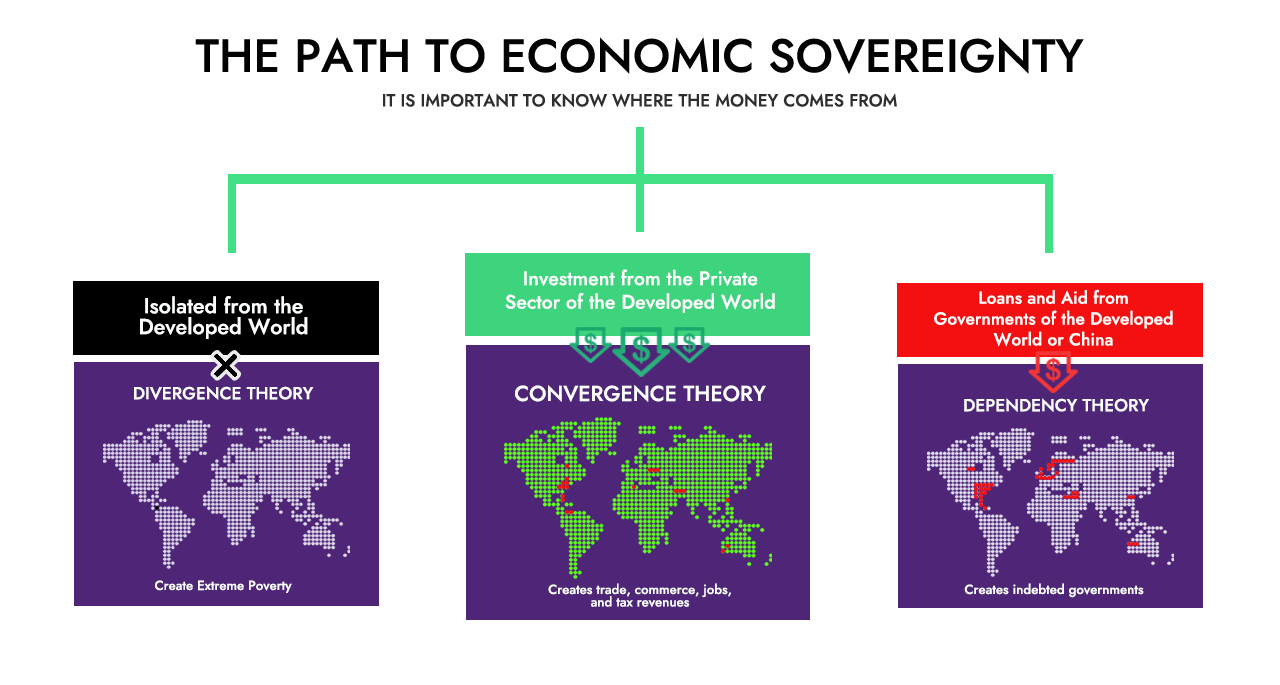Traditionally, Economic Convergence is the hypothesis that poorer economies per capita incomes will tend to grow at faster rates than richer economies. The University of California, Berkeley Professor of Economics Clark Kerr formulated the idea in the early 1960s that as technology was more widely available to lower-income countries, they could have the catch-up effect in competing with higher-income countries.
Countries such as Singapore, South Korea, and Taiwan have demonstrated the model works. More recently, Dubai, Rwanda, and Vietnam have learned to compete using this model to attract strong business investment leading to many great paying jobs and reducing poverty. After studying the success of their economies, several key signs began to emerge.
Most countries in the world have access to technology but not all are having the same fiscal achievement. The economies who grew the fastest focused more on creating an economic environment to attract investments from private sector Western economies, versus securing more aid and loans from them. The combination of digital technology and investment strengthened these economies much more effectively and will continue to do so with the emergence of the Digital Transformation.
